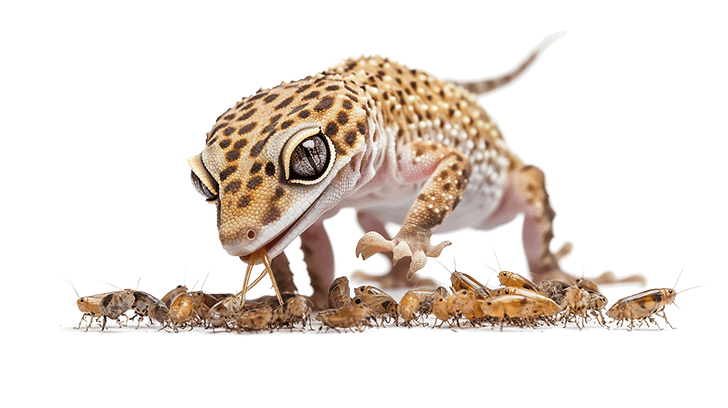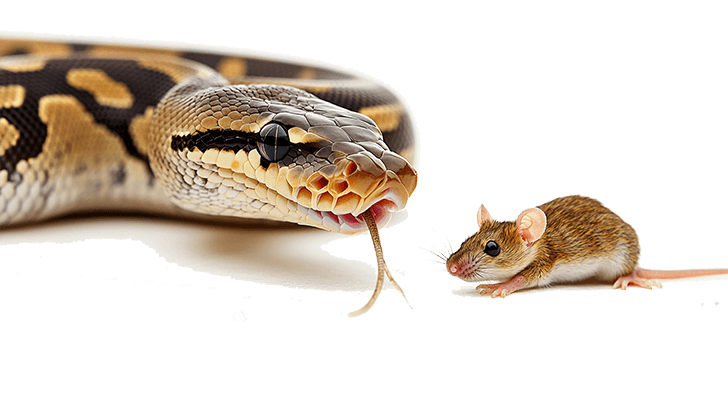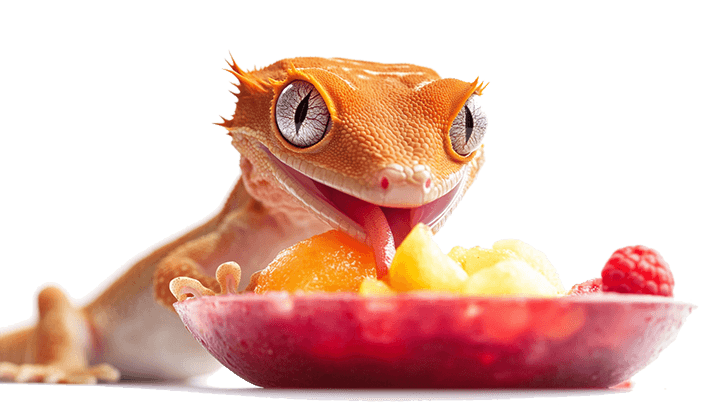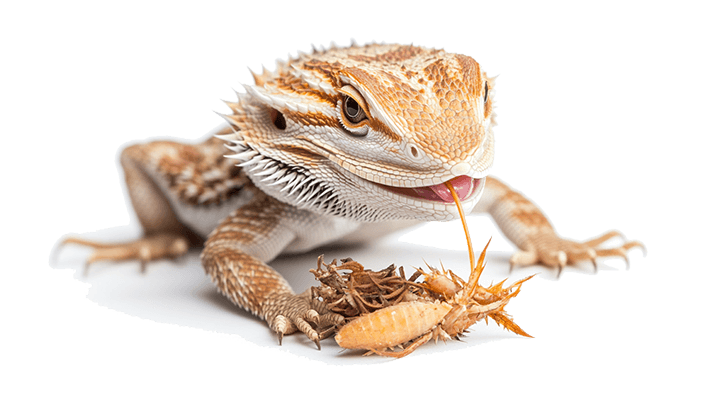Reptile Health Guides: Caring for the Unique Needs of Your Cold-Blooded Companion
Reptiles are fascinating creatures, but their care differs significantly from that of more traditional pets. Their health relies heavily on maintaining the right environment, diet, and lighting, all of which vary depending on the species. Whether you’re a new reptile owner or a seasoned handler, understanding the specific health requirements and common issues faced by reptiles is crucial to ensuring your pet thrives in captivity.

Environmental Needs
For reptiles, their environment plays a critical role in their overall health. As ectothermic animals, they rely on external heat sources to regulate their body temperature, making it essential to create the right conditions in their enclosures. A poor setup can lead to numerous health issues, many of which are preventable with proper care.
Reptiles require a temperature gradient within their enclosure, offering both a warm basking area and a cooler zone to allow for proper thermoregulation. The specific temperature requirements vary by species—desert reptiles like bearded dragons need higher basking temperatures, while tropical reptiles like chameleons require more moderate heat.
Humidity is another important factor. Tropical species, such as green iguanas and crested geckos, depend on higher humidity levels to stay hydrated and ensure proper shedding. Without the right humidity, reptiles can suffer from dehydration and incomplete shedding, which can lead to infections. Regular misting, the use of humidity trays, and accurate hygrometers are crucial tools for maintaining ideal humidity levels.
Lighting is particularly important for most reptiles. UVB lighting allows reptiles to synthesize vitamin D3, which is essential for calcium absorption and bone health. Without sufficient UVB exposure, reptiles can develop serious conditions like metabolic bone disease. Make sure to replace UVB bulbs every six to twelve months, as their effectiveness diminishes over time, even if they appear to be functioning.
By carefully monitoring and adjusting the environmental conditions in your reptile’s habitat, you can prevent many common ailments, including respiratory infections, dehydration, and bone disorders.

Dietary Needs
A well-balanced diet is another cornerstone of good reptile health. Different species have varied dietary needs, from carnivorous snakes to herbivorous tortoises and omnivorous bearded dragons. Feeding your reptile the correct diet, along with proper supplementation, is essential for their long-term health.
Calcium and vitamin D3 supplements are crucial for reptiles like bearded dragons and leopard geckos. Without these nutrients, they are at risk of developing metabolic bone disease, a condition that weakens their bones and can be fatal if left untreated. For insectivores, “gut-loading” (feeding nutritious food to the insects before offering them to your reptile) and dusting prey with calcium powder ensures your reptile gets the necessary nutrients.
Variety in the diet is also important, particularly for reptiles that can become bored or malnourished on a repetitive diet. Chameleons, for instance, benefit from a varied diet of insects and occasionally small amounts of plant matter. Providing different food items helps prevent nutritional deficiencies and keeps your reptile engaged at feeding time.
Herbivorous reptiles, such as tortoises or iguanas, require a diverse array of leafy greens, vegetables, and fruits. Avoid feeding them iceberg lettuce or other nutrient-poor foods that offer little benefit. Instead, focus on nutrient-rich options like kale, collard greens, and dandelion leaves.

Common Reptile Health Problems
Even with the best care, reptiles can still face health challenges. Recognizing the early signs of illness and taking swift action can make all the difference in your pet’s recovery. Some of the most common health issues seen in reptiles include:
Metabolic Bone Disease (MBD)
This condition, caused by a lack of calcium and vitamin D3, leads to soft and weak bones. MBD is most commonly seen in reptiles that don’t receive proper UVB lighting or calcium supplementation. Symptoms include lethargy, difficulty moving, swollen limbs, and bone deformities. Early intervention with calcium supplements and adjustments to lighting can prevent the disease from progressing.
Respiratory Infections
Respiratory problems often arise from improper humidity levels, poor ventilation, or a drafty enclosure. Signs of respiratory infection include wheezing, open-mouth breathing, nasal discharge, and lethargy. If untreated, these infections can become severe. Ensuring proper environmental conditions, particularly humidity and temperature, can help prevent respiratory issues.
Parasites
Both internal and external parasites are common in reptiles. Mites, which are visible on the skin, and intestinal worms can cause significant discomfort and health problems. Frequent scratching, abnormal stools, or visible mites are signs that your reptile may be dealing with parasites. Treatment typically involves antiparasitic medications and thorough cleaning of the enclosure to prevent reinfestation.
Dehydration
Reptiles from humid environments, such as chameleons or green iguanas, are especially prone to dehydration if they do not have access to enough water or if the humidity in their enclosure is too low. Signs of dehydration include wrinkled skin, sunken eyes, and lethargy. Providing regular misting, proper humidity levels, and fresh water can help prevent dehydration.
Shedding Problems (Dysecdysis)
Improper shedding can occur if humidity levels are too low, leading to stuck shed, particularly around the toes and tail. This can cause circulation issues and, if left untreated, may lead to infection or even loss of digits. Regular misting, maintaining optimal humidity, and providing rough surfaces in the enclosure to help with shedding can prevent this issue.

Breed-Specific Health Issues
Each reptile species comes with its own set of health challenges. Here are some common issues you may encounter with popular reptile pets:
Bearded Dragons
Bearded dragons are prone to metabolic bone disease, respiratory infections, and impaction, which occurs when they ingest substrate or improperly sized food items. Ensuring they receive adequate UVB lighting, a varied diet, and are kept in clean, well-ventilated enclosures is crucial for their well-being.
Leopard Geckos
These geckos frequently experience stuck sheds, particularly around their toes, which can lead to circulation problems. They are also susceptible to metabolic bone disease if not given enough calcium. Providing humid hide boxes and calcium supplements is essential for their care.
Ball Pythons
Ball pythons can develop respiratory infections if their humidity levels are not maintained properly. They are also prone to scale rot if kept in unsanitary conditions, which can cause painful lesions on their belly scales. Maintaining cleanliness and the proper humidity in their enclosure will help prevent these issues.
Crested Geckos
While relatively hardy, crested geckos require high humidity and a balanced diet to avoid issues like metabolic bone disease and dehydration. They thrive in enclosures with plenty of climbing space, foliage, and regular misting to mimic their natural environment.
Chameleons
Chameleons are known for their sensitivity and can suffer from a variety of health problems, including dehydration, eye infections, and stress-related illnesses. They need specific care, including proper UVB lighting, controlled humidity, and minimal handling to reduce stress.
When to See a Vet
Reptiles often hide their symptoms until their condition becomes severe, making it important to recognize subtle signs of illness. If your reptile exhibits a lack of appetite, sudden weight loss, lethargy, or breathing difficulties, it’s crucial to consult a reptile-savvy veterinarian immediately. Other red flags include abnormal stools, visible parasites, or difficulty shedding.
Preventive care is the best way to keep your reptile healthy. This includes regular vet check-ups, ensuring a proper diet, and maintaining optimal environmental conditions. If you’re ever in doubt about your reptile’s health, it’s always better to seek veterinary advice early rather than waiting until the problem worsens.
By understanding and addressing your reptile’s unique environmental, dietary, and health needs, you can create an optimal living situation that ensures their long-term well-being. Whether you’re caring for a robust bearded dragon or a delicate chameleon, preventive care and early detection of health issues will help your reptile live a happy and healthy life.
Explore Our Reptile Health Guides by Species
Proper reptile care begins with understanding their unique needs and potential health risks. Explore our species-specific health guides to ensure your reptile remains happy and healthy!

